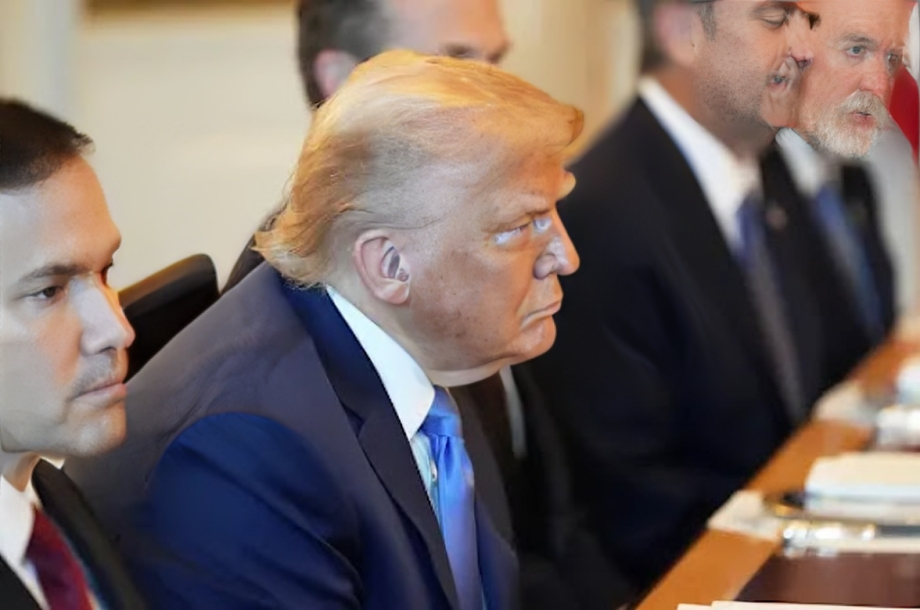Trump’s 25% tariff announcement has sent shockwaves through global markets, as the former U.S. President on Monday imposed a sweeping 25% tax on imports from Japan and South Korea. Letters were posted publicly on Truth Social, addressed directly to Japanese Prime Minister Shigeru Ishiba and South Korean President Lee Jae Myung, warning against retaliatory tariffs.
In these letters, Trump’s 25% tariff was justified as a necessary measure to boost domestic manufacturing and support the tax cuts he signed into law last Friday. The tariffs will go into effect on August 1, giving trade partners only three weeks to negotiate alternative deals.
Letters Threaten Retaliation for Retaliation
Trump’s 25% tariff letters warned that any increase in tariffs by the affected nations would lead to further increases from the U.S. “If for any reason you decide to raise your Tariffs… it will be added onto the 25% that we charge,” Trump wrote.
The letters also included administrative errors — with Bosnia’s female president, Željka Cvijanović, mistakenly addressed as “Mr. President.” Though later corrected, it added a bizarre note to an already tense moment in international relations triggered by Trump’s 25% tariff.
Tariff Breakdown: More Than Just Two Countries Affected
Trump’s 25% tariff plan wasn’t limited to Japan and South Korea. Several other nations face even higher rates, including:
- Myanmar, Laos: 40%
- Cambodia, Thailand: 36%
- Serbia, Bangladesh: 35%
- Indonesia: 32%
- South Africa, Bosnia and Herzegovina: 30%
- Kazakhstan, Malaysia, Tunisia: 25%
These numbers show that Trump’s 25% tariff is just one part of a broader trade overhaul affecting more than a dozen nations.
Economic Impact and Market Reaction
The U.S. stock market immediately responded to Trump’s 25% tariff with concern. The S&P 500 fell by 0.8%, while the 10-year Treasury yield jumped to 4.39%, which could raise borrowing costs for consumers through higher mortgage and auto loan rates.
The Trump administration declared an economic emergency to enforce the tariffs unilaterally, bypassing Congressional approval. However, this use of power is now under legal challenge after a court ruling in May claimed Trump exceeded his authority.
Strategic Concerns with Key Allies
Wendy Cutler, a former U.S. trade negotiator, called Trump’s 25% tariff move “unfortunate,” especially as Japan and South Korea are essential partners in shipbuilding, semiconductors, and energy. Critics argue that alienating allies might weaken U.S. leverage against China — the nation still subject to a 55% tariff.
South Korea’s Trade Ministry said it is accelerating talks with the U.S. to avoid implementation of Trump’s 25% tariff on its exports. Meanwhile, South Africa condemned the characterization of its trade ties and promised diplomatic negotiations.
Ongoing Trade Gaps and Unfinished Deals
Trump’s 25% tariff is part of a broader effort to close massive trade gaps. In 2024, the U.S. had a $69.4 billion trade deficit with Japan and $66 billion with South Korea. Trump’s letter stated that:
- Autos will face a standard 25% tariff
- Steel and aluminum imports will be taxed at 50%
Despite promises of “90 deals in 90 days,” only two trade frameworks have materialized — with Vietnam and the U.K. The Vietnam deal discourages China from routing exports through its neighbor, while the U.K. deal spares certain industries like autos and steel from maximum tariff exposure.
Trade Negotiations and Tariff Delay
To calm markets, Trump’s 25% tariff was paired with a three-week grace period, effectively giving partners until August 1 to reach new agreements. Trump signed an executive order to delay the final rates, calling it “deal-making overtime.”
Still, experts like Josh Lipsky from The Atlantic Council believe the delay is not enough for meaningful changes. “It’s a sign he’s serious about most of these tariffs,” he said.
Tariffs to Offset Tax Cuts?
Trump’s 25% tariff is also seen as a method to fund his recent July 4 tax cuts, with officials stating that tariff revenues will help offset lost government income. Economists warn this could shift more tax burden onto the middle class and low-income consumers, as importers will likely pass higher costs to shoppers.
Trump has urged companies like Walmart to “eat” the price difference instead of raising consumer prices, though economists believe inflation is likely to be affected. (AP)
Madras University April UG 2025 Result ab live hai!



